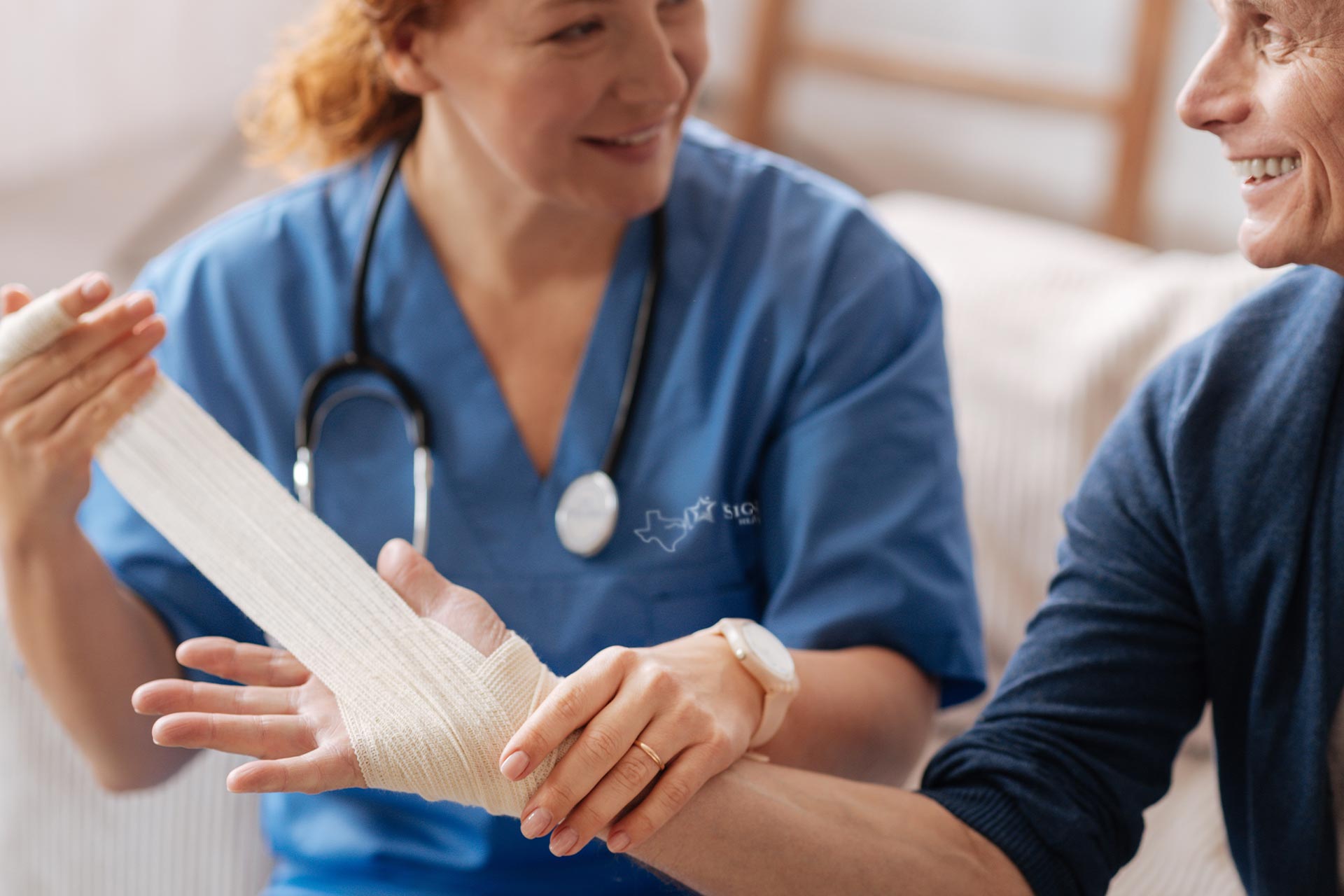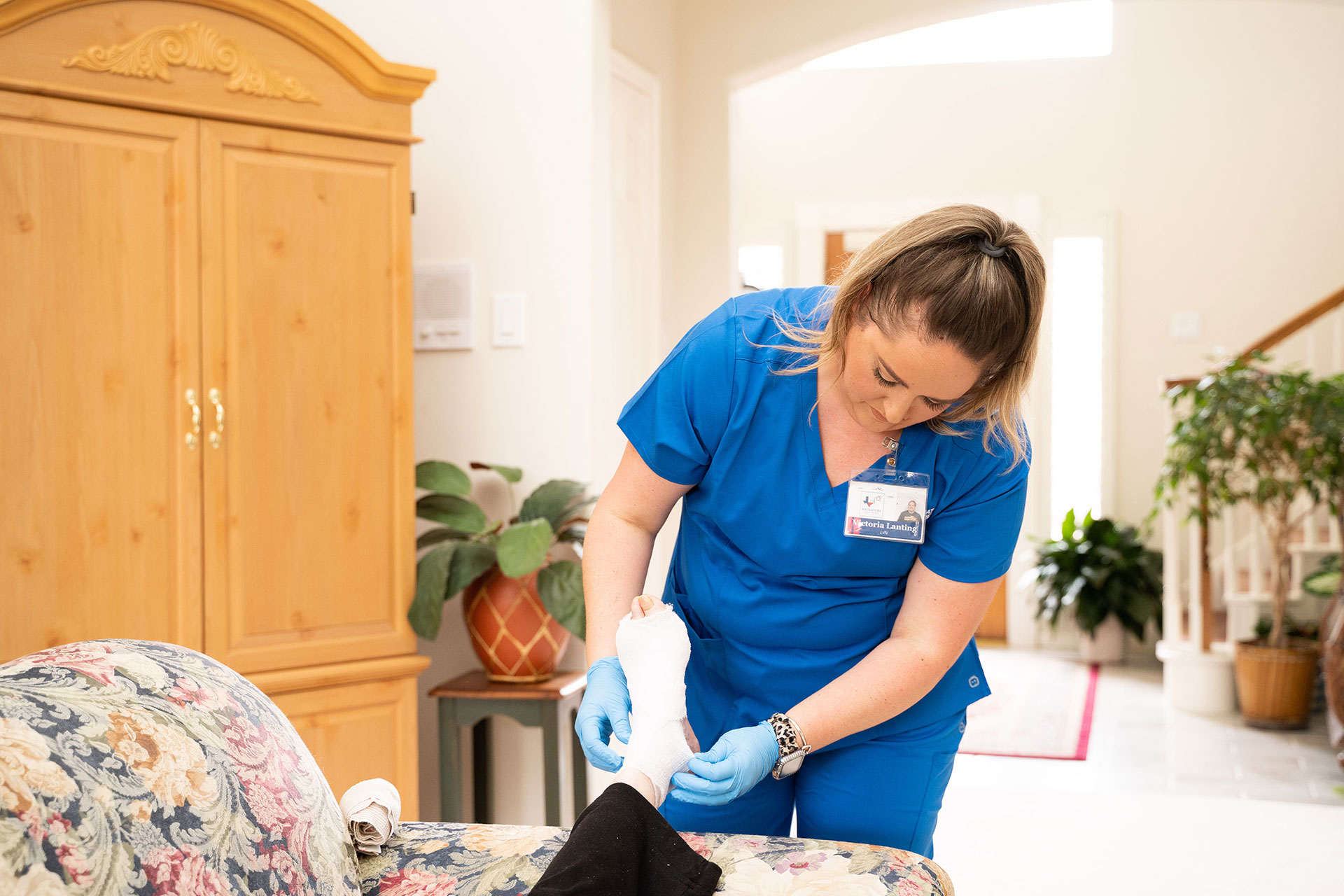Wound care is a complex bodily process that aims to maintain skin integrity and other tissues after an injury or surgery. This biological process involves a series of stages that can be influenced by several factors, one of the most important being nutrition. Proper nutrition is critical in the healing process, affecting the speed and quality of recovery.
Stages of Wound Healing
There are four overlapping stages for wound healing. Each one requires specific nutrients to proceed efficiently:
- 1Hemostasis – The immediate response to injury, where blood clotting occurs to prevent excessive bleeding. Platelets are critical here, and vitamin K is essential for synthesizing the proteins involved in clotting.
- 2Inflammation – Following hemostasis, the body’s immune response kicks in, sending white blood cells to the wound site to prevent infection. During this stage, the body needs a good supply of vitamins A and C, zinc, and protein to support the immune response and prepare the site for tissue growth.
- 3Proliferation – New tissue and blood vessels form during this phase, and collagen synthesis is crucial. Protein, vitamin C, and zinc are necessary for collagen formation and tissue repair.
- 4Remodeling – The final stage involves the maturation and strengthening of the new tissue. This step can take weeks to months and requires ongoing nutritional support, particularly from protein and vitamin A.
Importance of Nutrition in Wound Healing
The connection between nutrition and wound healing cannot be overstated. Poor nutritional status can delay wound healing, increasing the risk of infection while leading to poor outcomes. On the contrary, a balanced food intake, rich in essential nutrients, can speed the healing process and improve the quality of the new tissue.
Protein is the brick-and-mortar of new tissue. Insufficient protein intake can harm collagen synthesis, reduce wound tensile strength, and delay the healing process. Vitamin C is vital for collagen formation and a powerful antioxidant that protects cells from damage caused by free radicals. Zinc is fundamental for DNA synthesis, cell division, and protein synthesis, all necessary for wound repair. Vitamin A is fuel for cell growth and differentiation and supports the immune system.

Best Foods for Healing Wounds
The intake of certain foods can significantly promote skin healing and expedite wound recovery. Here are some of the best meals for healing wounds:
Nutrition and Wound Healing Guidelines
Consider the following approaches to optimizing wound healing through nutrition. These are not just random suggestions but proven strategies that can make a huge difference in your recovery. By following these guidelines, you can feel confident that you are doing everything possible to support your body’s healing process.

Wound Recovery Food for Home Care
When managing wound care at home, it is paramount to focus on a skin-healing diet that includes a variety of nutrient-dense foods. Here are some practical tips for incorporating wound recovery food into your home care routine:
An adequate intake of fundamental nutrients, such as zinc, protein, and vitamins A and C, can significantly enhance the body’s ability to repair and regenerate tissue. By following proper nutrition and wound healing guidelines and incorporating the best foods for healing wounds into your diet, you are taking a proactive step in supporting optimal recovery and improving the overall quality of your healed tissue. Whether you are recovering from surgery, an injury, or a chronic wound, remember that a balanced, nutrient-rich diet is a powerful tool in the healing process, and you have the power to use it.
If you are homebound, Signature can provide most of these vaccines on a doctor’s order. Contact Signature 24/7 at 1.800.277.8291 for more information.

We Are Here to Help
ALWAYS ON CALL
| Monday – Sunday | 24 / 7 |
1 (800) 277-8291 (option 1)
COUNTIES SERVED
OUR VALUES
TESTIMONIALS

I love all of my home health people.

All Signature staff as well as therapy were very helpful.

Their services have always been great.

I really love my physical therapist. Gary has helped me so much.

This has been one of the best agencies. Very caring nurses.

I’ve had a really good physical therapist and really nice nurses.

I have had excellent care & would recommended them to anyone.

Gary Dixon is the very best physical therapist in Baytown and Houston Area.

